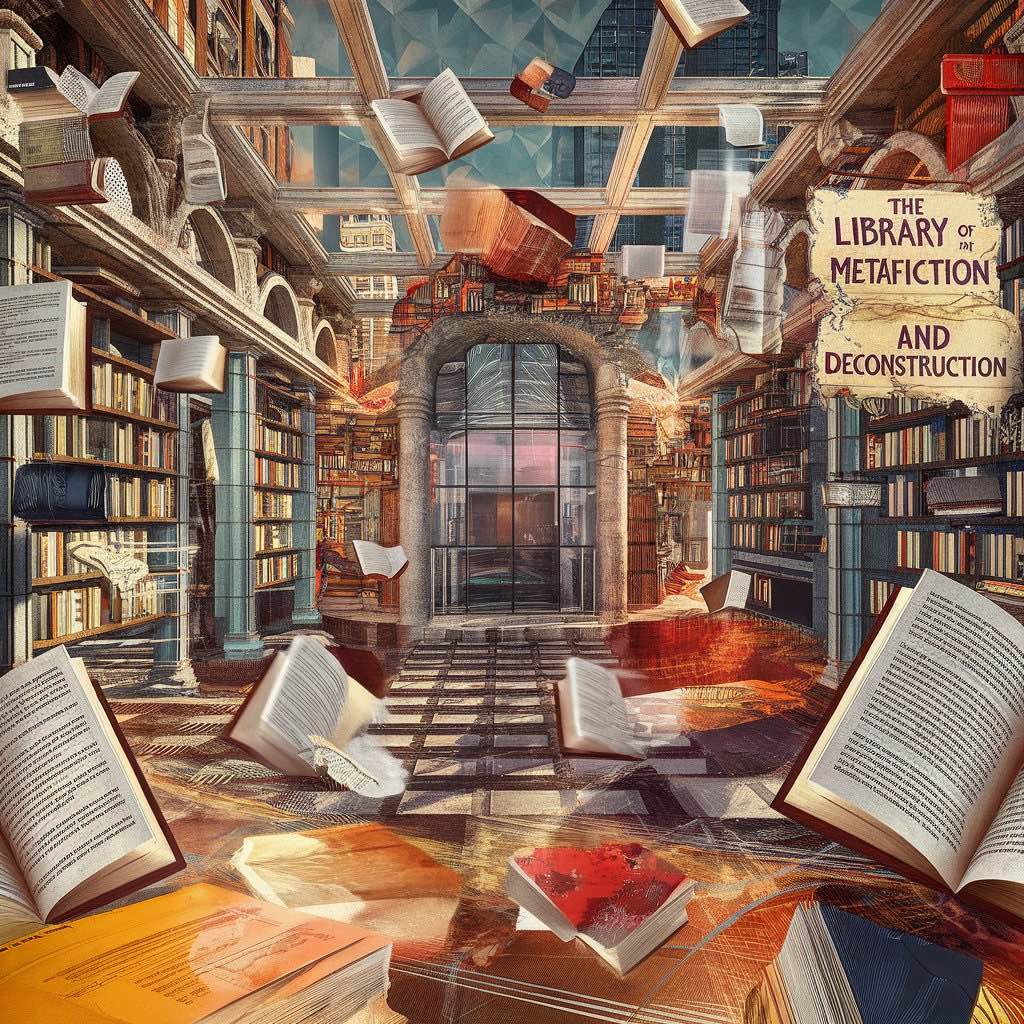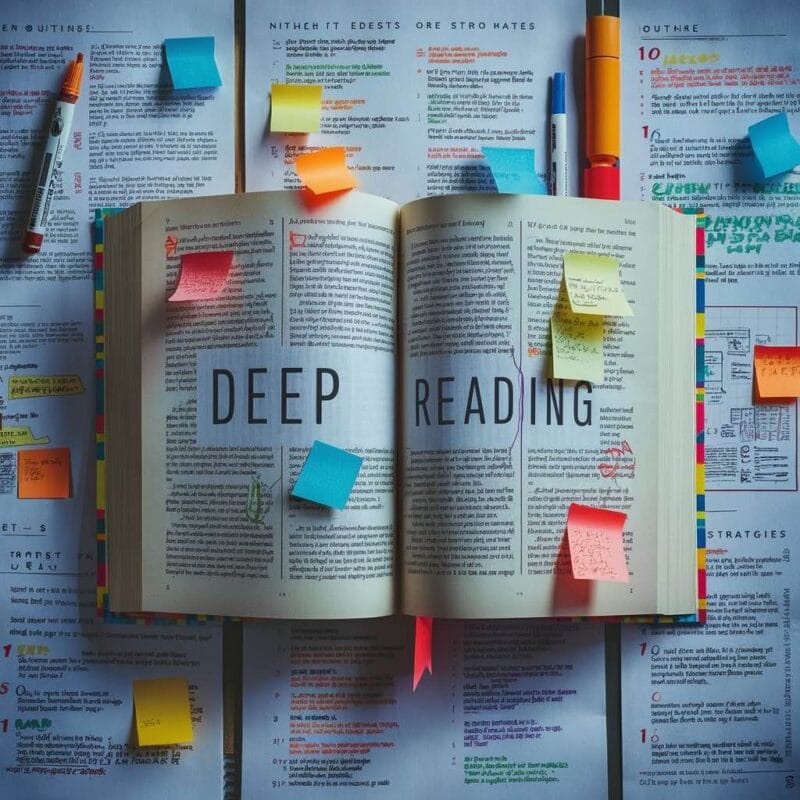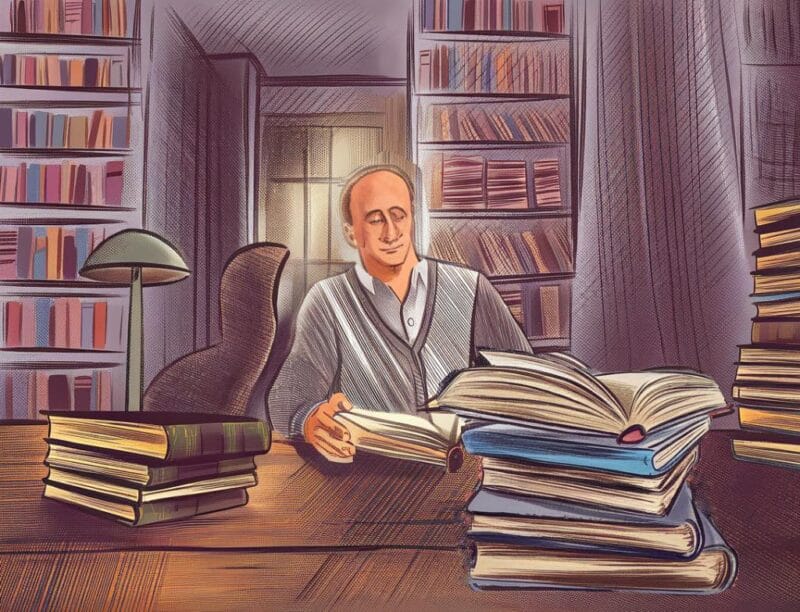- Postmodern literature emerged in the mid-20th century, challenging traditional narratives with experimental approaches and skepticism toward grand narrative styles.
- Notable authors like Thomas Pynchon, Kurt Vonnegut, and Margaret Atwood used techniques such as pastiche, metafiction, and fragmentation to blur the lines between fiction and reality.
- This movement reflects the complexity and ambiguity of human experience, influenced by historical events like World War II, the Cold War, and the rise of mass media.
- Influential thinkers like Michel Foucault, Jacques Derrida, and Jean-François Lyotard introduced concepts that questioned power structures, language instability, and grand narratives.
- Postmodern literature is characterized by fragmentation, metafiction, irony, and intertextuality, often blending high and low culture and critiquing grand ideologies.
- Major themes include:
– Questioning of reality and truth
– Role of identity and subjectivity
– Blending of high and low culture
– Critiques of grand narratives and ideologies - Key authors and works:
– Thomas Pynchon: Gravity’s Rainbow
– Don DeLillo: White Noise
– Margaret Atwood: The Handmaid’s Tale
– Kurt Vonnegut: Slaughterhouse-Five
– Angela Carter: The Bloody Chamber - Critics argue postmodern literature’s complexity can be alienating, yet its reflection of contemporary society’s chaos remains relevant, especially in the digital age where identity and truth are fluid.
Postmodern literature emerged as a prominent form of storytelling in the mid-20th century, challenging traditional narratives and structures. Characterized by its experimental approach and skepticism toward grand narrative styles, postmodern literature explores complex themes through varied literary devices. This literary movement offers a distinct departure from modernism, adopting a playful yet critical stance toward conventions and assumptions of previous literary traditions.
Notable postmodern authors such as Thomas Pynchon, Kurt Vonnegut, and Margaret Atwood have contributed to this movement by crafting novels that challenge conventional boundaries. Through techniques like pastiche, metafiction, and fragmentation, these works push readers to reflect on the nature of truth and narrative. The emphasis is on diverse storytelling methods that redefine the relationship between text and meaning.
In the postmodern period, literature became a field where innovation in form and content flourished. This shift emerged partly as a response to the evolving social and technological scene, leading writers to explore new ways of character development and narrative construction. The postmodern condition, with its focus on the complexity and ambiguity of human experience, continues to influence contemporary writings, making it a field rich with potential for discovery and interpretation.
Historical Context and Origins
This section explores literature’s transition from modernism to postmodernism, the impact of key historical events, and the introduction of foundational thinkers.
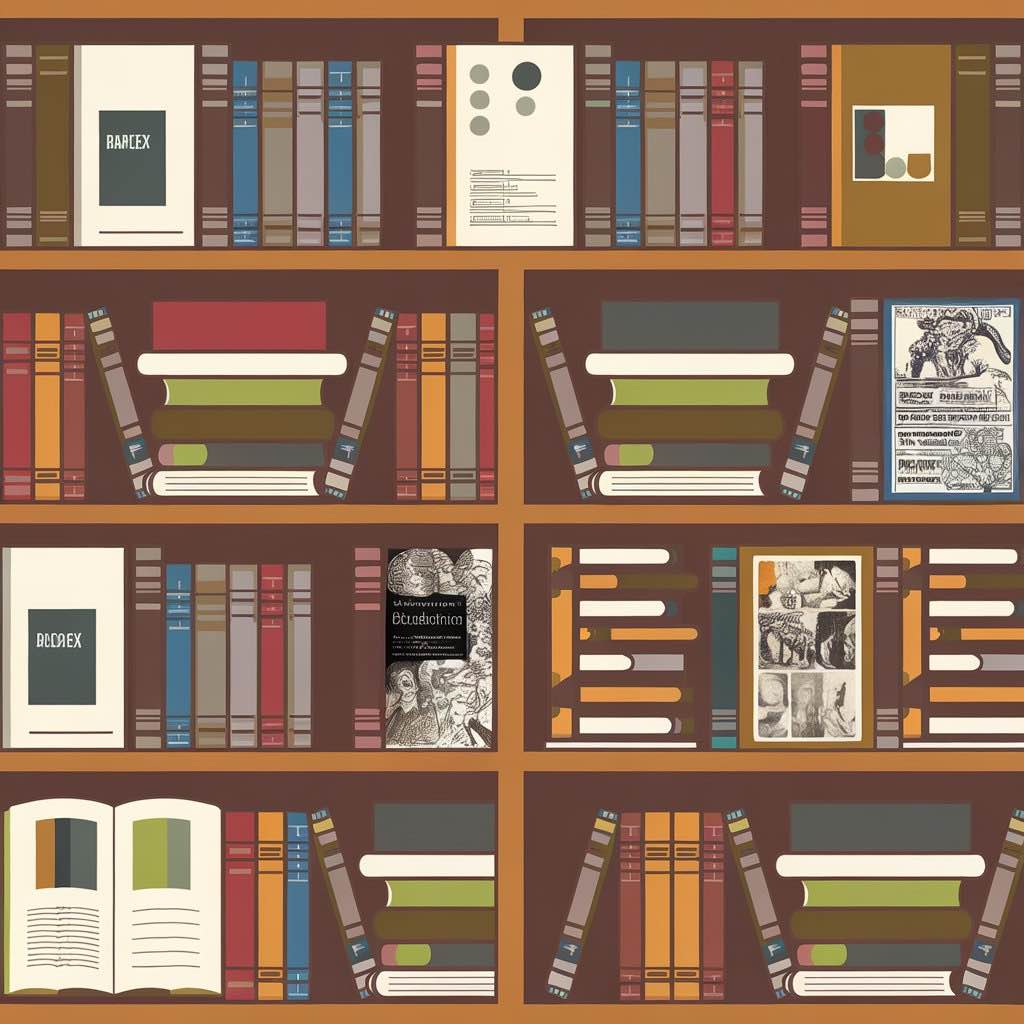
Modernism, characterized by a quest for new forms in response to industrialization and World War I, gradually gave way to postmodernism in the mid-20th century. Postmodern literature challenged established narrative structures and started to embrace irony and playfulness. Writers moved away from modernist ideals like high art versus low art. Instead, they embraced a more fragmented approach, reflecting the complexity and uncertainty of the post-war era. Metafiction, unreliable narration, and the questioning of objective truth became defining features, setting postmodern literature apart from its modernist predecessor.
Key Historical Events Influencing Postmodern Literature
Postmodern literature was deeply shaped by the global turbulence of the mid-20th century. The aftermath of World War II and the tensions of the Cold War created a climate of skepticism toward the grand narratives of progress. The Civil Rights Movement and counterculture of the 1960s also played a significant role, inspiring writers to delve into diverse perspectives and question traditional values. The rise of mass media further obscured the boundaries between reality and fiction, shaping literary techniques and themes as texts started to mirror a world undergoing rapid cultural shifts and technological growth.
In summary, key historical events that shaped postmodern literature include:
- World War II and the Holocaust: The unprecedented scale of violence and human suffering during World War II led to a profound sense of disillusionment with Enlightenment ideals of reason and progress.
- The Cold War: The ideological conflict between capitalism and communism further fueled a sense of paranoia and uncertainty about the future.
- The rise of mass media and consumer culture: The proliferation of mass media and advertising created a sense of information overload and a blurring of the lines between reality and simulation.
Foundational Postmodern Thinkers and Philosophers
Foundational postmodern thinkers and philosophers who influenced the literary movement include:
- Michel Foucault: Explored the relationship between power and knowledge, arguing that knowledge is not neutral but is always implicated in power structures.
- Jacques Derrida: Developed the concept of deconstruction, a method of critical analysis that challenges binary oppositions and exposes the inherent instability of language and meaning.
- Jean-François Lyotard: Argued that grand narratives, overarching explanations of history and society, had lost their credibility in the postmodern world.
Michel Foucault and Jacques Derrida are key figures whose ideas influenced the development of postmodern literature. Foucault’s theories on power and knowledge questioned established norms, while Derrida introduced poststructuralism, emphasizing the instability of meaning within texts. Their philosophies inspired authors to incorporate elements of self-reflexivity and intertextuality, reshaping how audiences engage with and interpret literary works.
Jean-François Lyotard, another pivotal figure in the postmodern movement, contributed significantly with his concept of the “postmodern condition,” which he described as an incredulity toward metanarratives. Lyotard argued that grand, overarching stories or theories that claim to explain various aspects of human experience are no longer credible in the contemporary world. This skepticism towards universal truths further encouraged postmodern writers to focus on smaller, localized narratives and to embrace fragmentation and plurality in their storytelling.
Characteristics of Postmodern Literature
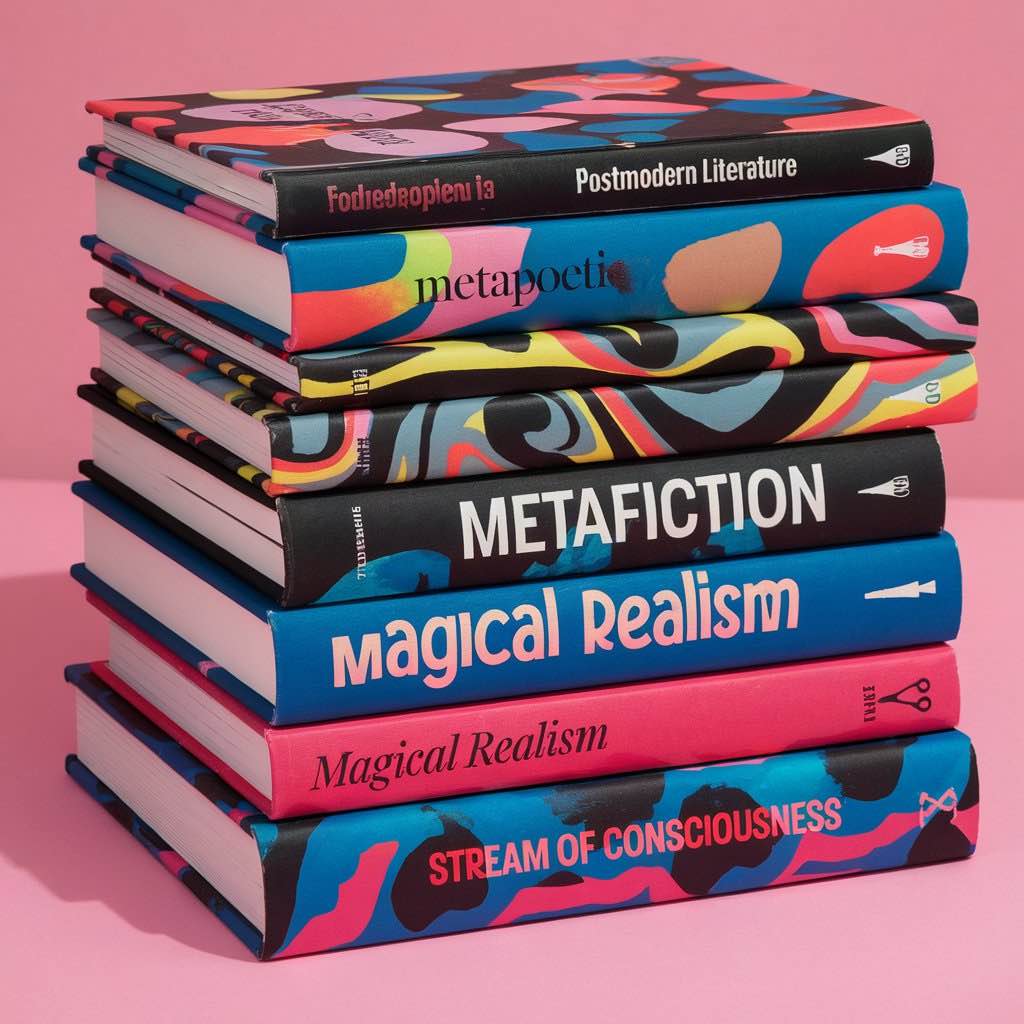
This section elaborates on the defining elements that contribute to the unique nature of this literary movement, highlighting fragmentation, metafiction, irony, and intertextuality.
Fragmentation and Paradox
Fragmentation in postmodern literature manifests as disjointed narratives and characters. It often disrupts the traditional flow of a story, embodying the complexities and contradictions of reality. Paradox plays a role in illustrating these contradictions, challenging readers to find meaning within the chaos.
This approach underscores the multiplicity of truth and experience, often leaving narratives unresolved or complexly intertwined. Such structures reflect the uncertainty and ambiguity prevalent in modern societies, presenting a stark contrast to more linear and coherent storytelling methods.
Metafiction and Self-Referentiality
Metafiction is a key feature where texts become self-aware, often breaking the fourth wall. Characters or narrators acknowledge their fictional nature, questioning their roles within the narrative. This self-reflexivity explores themes of reality and illusion, blurring the line between fact and fiction.
By emphasizing the construction of a narrative, postmodern authors invite readers to engage critically, contemplating the relationship between the narrative and their perception of reality. It calls attention to the process of storytelling itself, allowing for a deeper exploration of narrative techniques and their implications.
Irony, Playfulness, and Black Humor
Irony permeates postmodern works, often used to critique or subvert traditional ideologies and conventions. This is accompanied by a playful tone, which can be whimsical or absurd, disrupting conventional approaches. These works frequently utilize black humor to address serious subjects, making light of heavy or taboo topics.
This combination creates a unique lens through which societal and existential themes are explored. It sparks reflection and sometimes discomfort, pushing a reconsideration of previously accepted truths. The interplay of irony and humor serves to both entertain and provoke thought.
Pastiche and Intertextuality
Pastiche involves the blending of various literary styles and genres without parodying or ridiculing them. It embraces pluralism, celebrating the diverse influences that shape literature. Intertextuality is often employed, referencing other works and texts within new narratives.
These elements highlight the interconnectedness of literature across time and form. Rather than creating in isolation, postmodern works acknowledge and build upon the existing body of literature, weaving together threads from disparate sources to form new narratives. This approach creates a dynamic dialogue between texts, contributing to the depth and richness of postmodern literary discourse.
| Characteristic | Description |
|---|---|
| Fragmentation and paradox | Postmodern works often eschew traditional linear narratives, presenting fragmented stories with multiple perspectives and contradictory viewpoints. |
| Metafiction and self-referentiality | Postmodern authors frequently draw attention to the artificiality of their creations, breaking the fourth wall and reminding readers that they are engaging with a work of fiction. |
| Irony, playfulness, and black humor | Postmodern literature often employs irony, humor, and satire to expose the absurdity of the world and challenge conventional norms. |
| Pastiche and intertextuality | Postmodern works often incorporate elements from different genres and styles, creating a collage of cultural references and allusions. |
Major Themes in Postmodern Literature

Postmodern literature grapples with a number of complex themes that reflect the anxieties and uncertainties of the postmodern condition. These themes reflect cultural shifts that reevaluate the boundaries between fiction and reality.
The Questioning of Reality and Truth
In postmodern literature, the nature of reality and truth is often examined through narrative manipulation and varying perspectives. Authors employ metafiction, magic realism, and unreliable narrators to blur the lines between fiction and reality, emphasizing that perceptions of truth can be fragmented and vague.
The interplay between coherence and chaos opens the possibility for multiple interpretations, creating a disorienting experience that reflects the complexity of understanding reality in a postmodern world. Postmodern works often challenge the notion of an objective reality, suggesting that truth is often relative and subjective.
The Role of Identity and Subjectivity
Postmodern literature explores the complexities of identity and subjectivity, emphasizing the fluid and multifaceted nature of the self. Through their struggles with both reality and their own identities, characters echo broader concerns about personal and cultural expression.
It also highlights the instability of identity, suggesting that the self is constructed through language and social interactions. Themes of disorientation and fragmentation emphasize how individuals continuously negotiate societal constructs that shape their understanding of themselves.
The Blending of High and Low Culture
Postmodern literature frequently merges high and low culture to reflect the dissolution of traditional boundaries between different artistic forms. By incorporating elements from contemporary genres alongside classical references, writers challenge conventional literary hierarchies.
Postmodern works often blur the line between highbrow and lowbrow by incorporating elements from popular culture, mass media, and everyday life. This blending creates a chaotic yet cohesive tapestry that mirrors the diverse influences shaping modern society, questioning what constitutes “high art” by exploring its democratization.
Critiques of Grand Narratives and Ideologies
Postmodern literature rigorously critiques grand narratives and ideologies, deconstructing the very concept of universal truths that have historically shaped societal thought. By subverting traditional literary conventions and engaging with complex historical and political contexts, postmodern texts expose the artificial and constructed nature of these narratives, revealing them as subjective and contingent rather than objective or timeless.
Postmodern works explore themes like postcolonialism, feminism, and capitalism to dissect the power structures embedded in dominant ideologies and urge readers to reconsider the legitimacy of established beliefs. In this way, postmodernism destabilizes the grand explanatory frameworks of history and society—whether Marxist, liberal, or otherwise—by demonstrating their inherent limitations, contradictions, and exclusionary tendencies. This critique encourages a deeper understanding of the complex and often contradictory aspects of human experience.
Postmodern Authors and Their Notable Works

Thomas Pynchon
Thomas Pynchon stands as a towering figure among postmodern writers. Known for his complex and encyclopedic novels that explore themes of paranoia, conspiracy, and the breakdown of order, his works often weave together historical and scientific elements.
Pynchon’s notable works, such as Gravity’s Rainbow (1973), delve into themes of technology, paranoia, and identity. His writing style, characterized by dense prose and rich symbolism, challenges readers to unravel layers of meaning. Despite his penchant for being reclusive, Pynchon’s influence pervades modern literary studies, with his books continuing to intrigue and inspire critical discussions on postmodernist literature.
Don DeLillo
Don DeLillo’s influence in postmodern literature stems from his examination of the intersection between media, culture, and human experience. His landmark novel White Noise (1985) addresses the anxieties of contemporary American life, focusing on themes of consumerism, media saturation, and information overload, alongside the threat of terrorism. His portrayal of contemporary life’s anxieties also reflects the disorienting nature of modern existence, particularly with his work Underworld, wherein he engages with American identity and historical dynamics.
Margaret Atwood
Margaret Atwood infuses her postmodern fiction with social critique and speculative elements. Renowned for The Handmaid’s Tale (1985), she explores themes of gender, power, and dystopia. Through her blend of rich characterization and allegory, her stories inspire deeper consideration of contemporary issues.
Her works often utilize metafiction and shifts in narrative perspective to enhance postmodernist thematic elements. Atwood’s contribution to postmodern literature also extends through her diverse writings, spanning novels, poetry, and essays, which together showcase the expanse of her productive output and her literary versatility.
Kurt Vonnegut
Kurt Vonnegut offers a unique voice characterized by satirical sensibility with philosophical inquiry. His novel Slaughterhouse-Five (1969) demonstrates this blend, combining elements of science fiction with profound anti-war sentiments. Vonnegut’s distinct style often merges simplicity with biting wit and black humor.
Through concise language and absurdist scenarios, his works critique human follies and existential quandaries. Vonnegut’s enduring appeal in postmodern literature arises from his ability to blend entertainment with profound commentary, making his narratives not only accessible but thought-provoking and entertaining.
Angela Carter
Angela Carter’s contributions to postmodern literature are marked by her feminist perspective and fairy tale reconstructions. In works like The Bloody Chamber (1979), she reimagines classic stories, infusing them with gothic and fantastical elements. Carter’s prose often blends the sensual with the surreal, challenging traditional narrative roles.
Nights at the Circus, released in 1984, is celebrated for its magical realism and subversion of genre boundaries. The plot revolves around Fevvers, a trapeze artist who claims to be part woman, part swan. Carter’s narrative often challenges pre-existing notions by blending myth with reality, offering a transformative take on femininity and identity.
Criticisms and Controversies
With its often fragmented narrative structures and metaphysical themes, postmodern literature remains a hotbed of debate. Critics frequently question the value and interpretive frameworks of postmodern works, sparking ongoing discussions about their relevance in contemporary contexts and raising concerns about their artistic merit.
A primary critique of postmodern literature is its perceived obscurity and lack of coherence. Detractors argue that the genre’s rejection of established narrative conventions leads to works that are intentionally perplexing, ultimately undermining meaningful engagement with readers. This sense of disorientation can alienate audiences seeking clarity and connection.
However, proponents of postmodernism contend that this complexity mirrors the chaotic nature of contemporary society, providing a necessary reflection on the complexities of modern existence and challenging readers to grapple with ambiguity.
Additionally, the proliferation of information in the digital age further underscores postmodernism’s fragmented narratives. Themes such as the questioning of truth and identity resonate deeply in today’s context, where access to information is vast yet often unreliable. The internet, with its capacity to disseminate and distort information, exemplifies the postmodern condition, revealing the complexities of constructing meaning.
In digital spaces, where identities can be constructed, deconstructed, and redefined, postmodern literature’s exploration of fluid identity is strikingly relevant. In an era dominated by social media, fake news, and virtual realities, the postmodern themes of reality, identity, and truth have gained renewed significance.
Postmodern literature offers a critical framework that examines the multifaceted nature of human experience and encourages deeper reflection on the implications of identity and truth. Through this perspective, postmodern literature not only opens the door to critique but also nurtures a vibrant dialogue about the nature of art, meaning, and existence, securing its position within the literary canon as both provocative and essential to understanding the human condition today.
Further Reading
List of postmodern novels on Wikipedia
You Gotta Know These Postmodern Authors by Will Nediger, National Academic Quiz Tournaments, LLC
Postmodernism and Its Critics by Daniel Salberg, Robert Stewart, Karla Wesley and Shannon Weiss, University of Alabama
What the hell is postmodernism? on Reddit
